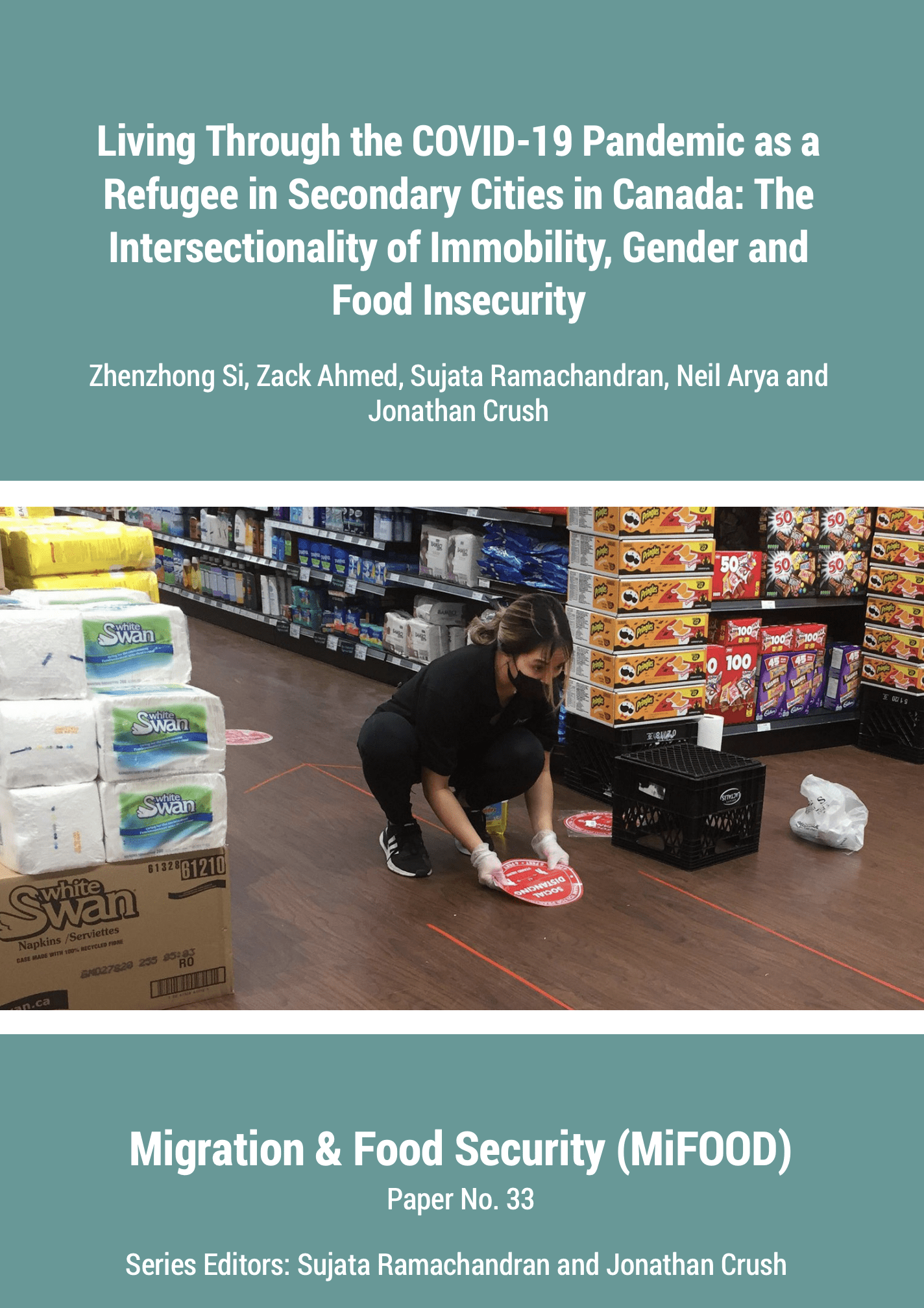The COVID-19 pandemic exposed and exacerbated the vulnerabilities of migrants and refugees in secondary cities in Canada, where the restrictive food environment and limited resources heightened challenges related to food security. This study investigates how the intersectionality of immobility, gender, and food insecurity shaped the lived experiences of recently resettled Syrian, Somali and Afghanistan refugees in the Waterloo Region, Canada, during the pandemic. The mixed methods research approach integrates survey and in-depth interview data to examine refugees’ motivations for migration, economic conditions, challenges in accessing culturally appropriate food, and the impact of gender roles. Findings reveal that structural barriers within the food environment, compounded by mobility restrictions and shifting gender dynamics, perpetuated a vicious cycle of marginalization that undermined migrants’ overall well-being. Women respondents were particularly affected as primary caregivers, by bearing the disproportionate burdens of food-related household responsibilities under precarious circumstances. This paper contributes to the discussion on migration, food systems, and social inequalities by emphasizing the need for gender-responsive and culturally sensitive policies to address the compounded challenges refugees encounter during crisis circumstances.

